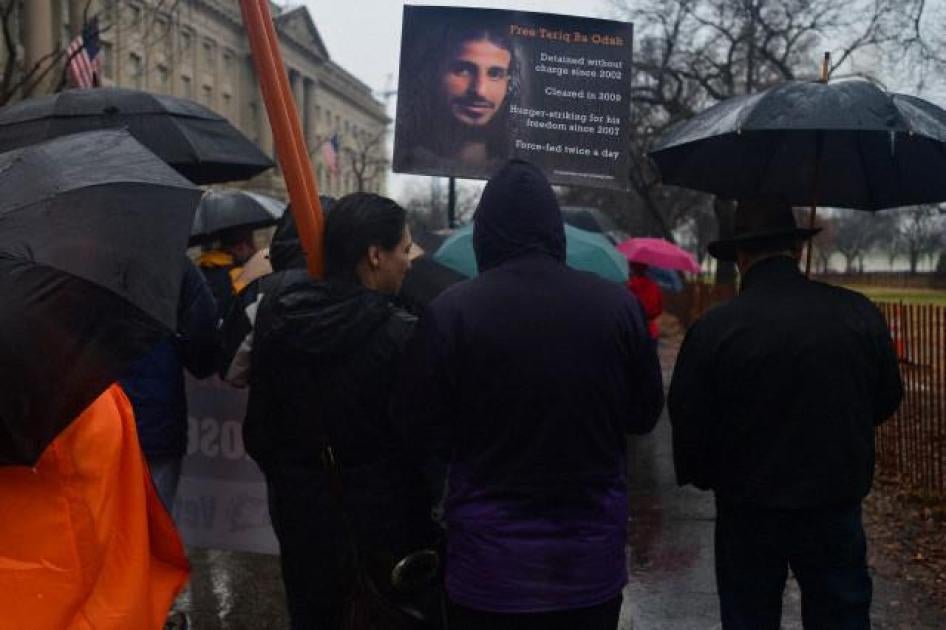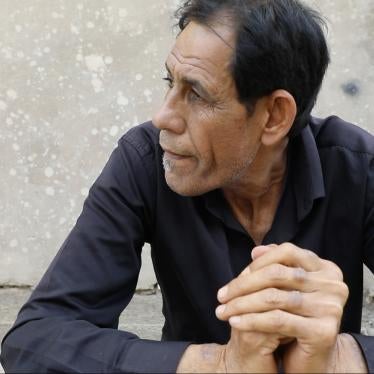In a deeply disappointing decision, the Obama administration chose on Friday to oppose a legal request for a court ordered-release brought by a Guantanamo detainee, whose lawyers and doctors say is on the verge of death. They did so even though the Obama administration cleared the detainee, Tariq Ba Odah, for transfer from the notorious prison five years ago.
Odah is a 37-year-old Yemeni and resident of Saudi Arabia who has been at Guantanamo since 2002 and on hunger strike for the past nine years protesting his indefinite detention. He weighs only 74.5 pounds – 56% of his ideal body weight and the average weight of about an 11-year-old healthy US boy. “During our last in person meeting,” Odah’s lawyer, Omar Farah, wrote in a court filing, “his weight had declined so much that he appeared essentially unrecognizable to me.” His doctors say he is in such a frail condition that a strong fever or infection could kill him in a period of days.
After having been held for 13 years without charge or trial, Odah’s medical condition alone should be reason enough not to oppose his petition for release. But in addition, in 2010, a six-agency US task force, which included representatives from intelligence and defense departments, recommended Odah be released from Guantanamo. This meant they concluded that the US would not charge Odah with a crime, and that releasing him subject to certain conditions would not pose a risk to the US.
For years Congress has imposed restrictions on the transfer of detainees out of Guantanamo, even those recommended for release by the task force. Obama himself has decried these restrictions, blaming them for his failure to close the facility. While the restrictions apply to most transfers, one exception is a court-ordered release. The easiest way for the Obama administration to release Odah – and follow through with its pledge to take steps to close Guantanamo – would have been to not oppose this legal petition for his release.
But instead the Justice Department filed an opposition to the petition, the basis of which is not yet clear because the government filed it under seal. Though apparently not the norm in habeas cases, the secret filing was a move that an unnamed administration official is reported to have said is aimed more at shielding the government from embarrassment than protecting classified information.
Regardless of the basis however, one thing is clear. No longer can the administration hide behind Congressional restrictions for its failure to close the prison. Yes, restrictions have made closing Guantanamo more difficult, but they are not the only obstacle. Another big one is the administration itself.









